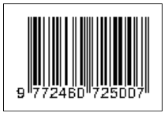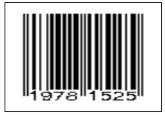Inverse Kinematic Algorithm with Newton-Raphson Method iteration to Control Robot Position and Orientation based on R programming language
Budiman Nasution(1), Lulut Alfaris(2), Ruben Cornelius Siagian(3*)
(1) Departemen of Physics, Faculty of Mathematics and Natural Science, Universitas Negeri Medan, Medan
(2) Department of Marine Technology, Politeknik Kelautan dan Perikanan, Pangandaran
(3) Departemen of Physics, Faculty of Mathematics and Natural Science, Universitas Negeri Medan, Medan
(*) Corresponding Author
Abstract
The homogeneous transform program is a function used to calculate the homogeneous transformation matrix at a specific position and orientation of a three-link manipulator. The homogeneous transformation matrix is a 4x4 matrix used to represent the position and orientation of an object in three-dimensional space. In the program, the rotation matrix R is calculated using the Euler formula and stored in a 4x4 matrix along with the position coordinates. The Jacobian matrix function calculates the Jacobian matrix at a specific position and orientation of a three-link manipulator using the homogeneous transformation matrix. The Euler formula used in the program is based on the rotation matrices for rotations around the x, y, and z-axes. The output of these functions can be useful for future research in developing advanced manipulators with improved accuracy and flexibility. Research gaps in exploring the limitations of these functions in real-world applications, particularly in scenarios involving complex manipulator configurations and environmental factors.
Keywords
Full Text:
PDFReferences
[1] D. Rozenberszki and A. L. Majdik, “LOL: Lidar-only Odometry and Localization in 3D point cloud maps,” presented at the 2020 IEEE International Conference on Robotics and Automation (ICRA), 2020, pp. 4379–4385.
[2] Y. Cai, Y. Wang, and M. Burnett, “Using augmented reality to build digital twin for reconfigurable additive manufacturing system,” Journal of Manufacturing Systems, vol. 56, pp. 598–604, 2020.
[3] M. W. Spong, S. Hutchinson, and M. Vidyasagar, Robot modeling and control. John Wiley & Sons, 2020.
[4] S. Jaladi, T. Rao, and A. Srinath, “Inverse kinematics analysis of serial manipulators using genetic algorithms,” in Soft Computing for Problem Solving: SocProS 2018, Volume 1, Springer, 2019, pp. 519–529.
[5] V. Mansur, S. Reddy, R. Sujatha, and R. Sujatha, “Deploying Complementary filter to avert gimbal lock in drones using Quaternion angles,” presented at the 2020 IEEE International Conference on Computing, Power and Communication Technologies (GUCON), 2020, pp. 751–756.
[6] A. Noccaro, A. Mioli, M. D’Alonzo, M. Pinardi, G. Di Pino, and D. Formica, “Development and validation of a novel calibration methodology and control approach for robot-aided transcranial magnetic stimulation (TMS),” IEEE Transactions on Biomedical Engineering, vol. 68, no. 5, pp. 1589–1600, 2021.
[7] Z. Fu, E. Spyrakos-Papastavridis, Y. Lin, and J. S. Dai, “Analytical expressions of serial manipulator jacobians and their high-order derivatives based on lie theory,” presented at the 2020 IEEE International Conference on Robotics and Automation (ICRA), 2020, pp. 7095–7100.
[8] W. Xu, Z. Mu, T. Liu, and B. Liang, “A modified modal method for solving the mission-oriented inverse kinematics of hyper-redundant space manipulators for on-orbit servicing,” Acta Astronautica, vol. 139, pp. 54–66, 2017.
[9] I. Chavdarov and B. Naydenov, “Algorithm for Determining the Types of Inverse Kinematics Solutions for Sequential Planar Robots and Their Representation in the Configuration Space,” Algorithms, vol. 15, no. 12, p. 469, 2022.
[10] X. Shi, Y. Guo, X. Chen, Z. Chen, and Z. Yang, “Kinematics and singularity analysis of a 7-DOF redundant manipulator,” Sensors, vol. 21, no. 21, p. 7257, 2021.
[11] B. Caasenbrood, A. Pogromsky, and H. Nijmeijer, “Control-oriented models for hyperelastic soft robots through differential geometry of curves,” Soft Robotics, 2022.
[12] S. Baressi Šegota, N. Anđelić, I. Lorencin, M. Saga, and Z. Car, “Path planning optimization of six-degree-of-freedom robotic manipulators using evolutionary algorithms,” International journal of advanced robotic systems, vol. 17, no. 2, p. 1729881420908076, 2020.
[13] D. I. Migranov, “A Library for Visualizing Three-Dimensional Non-Euclidean Spaces,” presented at the 2022 IEEE 23rd International Conference of Young Professionals in Electron Devices and Materials (EDM), 2022, pp. 646–650.
[14] I. Agustian, N. Daratha, R. Faurina, and A. Suandi, “Robot Manipulator Control with Inverse Kinematics PD-Pseudoinverse Jacobian and Forward Kinematics Denavit Hartenberg,” arXiv preprint arXiv:2103.10461, 2021.
[15] T. Dewi, S. Nurmaini, P. Risma, Y. Oktarina, and M. Roriz, “Inverse kinematic analysis of 4 DOF pick and place arm robot manipulator using fuzzy logic controller.,” International Journal of Electrical & Computer Engineering (2088-8708), vol. 10, no. 2, 2020.
[16] A. AlAttar and P. Kormushev, “Kinematic-model-free orientation control for robot manipulation using locally weighted dual quaternions,” Robotics, vol. 9, no. 4, p. 76, 2020.
[17] A. Muñoyerro, A. Hernández, M. Urizar, and O. Altuzarra, “A general automatic method for mechanism optimization based on kinematic constraints and analytical Jacobian matrix,” Proceedings of the Institution of Mechanical Engineers, Part C: Journal of Mechanical Engineering Science, p. 09544062221147829, 2023.
Article Metrics
Refbacks
- There are currently no refbacks.
Copyright (c) 2023 IJCCS (Indonesian Journal of Computing and Cybernetics Systems)

This work is licensed under a Creative Commons Attribution-ShareAlike 4.0 International License.
View My Stats1








